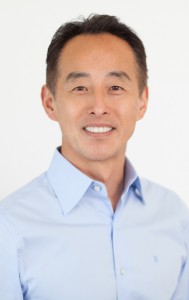 At Health 2.0, Samsung Electronics President and Chief Strategy Officer Young Sohn's presence, may have said more about Samsung's health agenda than anything he said during a 20-minute onstage interview with Health 2.0's Indu Subaiya. According to Subaiya, this was Sohn's first appearance at a healthcare-focused technology conference, and it demonstrated a serious and growing commitment to the health vertical for the electronics company.
At Health 2.0, Samsung Electronics President and Chief Strategy Officer Young Sohn's presence, may have said more about Samsung's health agenda than anything he said during a 20-minute onstage interview with Health 2.0's Indu Subaiya. According to Subaiya, this was Sohn's first appearance at a healthcare-focused technology conference, and it demonstrated a serious and growing commitment to the health vertical for the electronics company.
"If we look at the landscape of whats going on, of the mobility we have with a supercomputer in our pocket, with cloud capabilities, and the wearables that are coming, we think there is an opportunity to converge the information technology we’ve been working on and medicine and preventative health, that we believe we’ll be able to combine and we’ll be able to solve bigger problems than we have done in the past," he said.
Samsung unveiled two health offerings, both collaborative platform approaches, at an event last May: Simband and SAMI. Simband is an investigational wearable that will include both sensors from Samsung and room for developers to add their own third-party sensors -- essentially an open source wearable hardware product. Similarly, SAMI (Samsung Architecture Multimodal Interactions), a cloud-based software offering that will serve as a data broker for health tracking data, similar to Apple's HealthKit.
"Typically we create products we think that consumers will like and we ship [them] out to the world and hopefully they will be consumed," he said. "But in this case it was very different. We purposefully said, ‘You know, we don’t know enough about this area. So we’re going to create a platform.’ ... The reason we did that is very simple. I don’t think the issue of solving health-related topics can be done by one company. It needs to be done by many others that can contribute. So we decided to create a platform where different hardware companies can contribute, different software companies can contribute, and then in the process we believe that we can accelerate innovation."
On the theme of partnership, Sohn also spoke about some of the investments Samsung has made in the digital health space, highlighting the company's investments in health sensor companies in areas like blood pressure and glucose. He said Samsung had invested in 19 companies in the last 18 months.
"I think we are in the first inning of a nine inning game [with sensors]," he said. "So we are in a very early stage and we believe there is a huge opportunity to improve. We’ve been working with a lot of very interesting companies."
Subaiya asked Sohn about one of the hot-button issues in health data sharing, as well: data ownership. Sohn was clear about Samsung's approach.
"I think, particularly when you are talking about your own information, it’s really important that we have a clear process around the subject, and it’s important that we think about what’s yours," he said. "And so we announced our SAMI platform. You can put your different vital sign information in there, but what we said was we’re a bank. We’re a custodian of your data just like a bank is a custodian of your money, but it doesn’t belong to the bank. And I think the same thing, but we happen to be holding those as part of aggregating information. So that’s the direction we’re going, but I think we’ve got to have some public policy around this issue."















